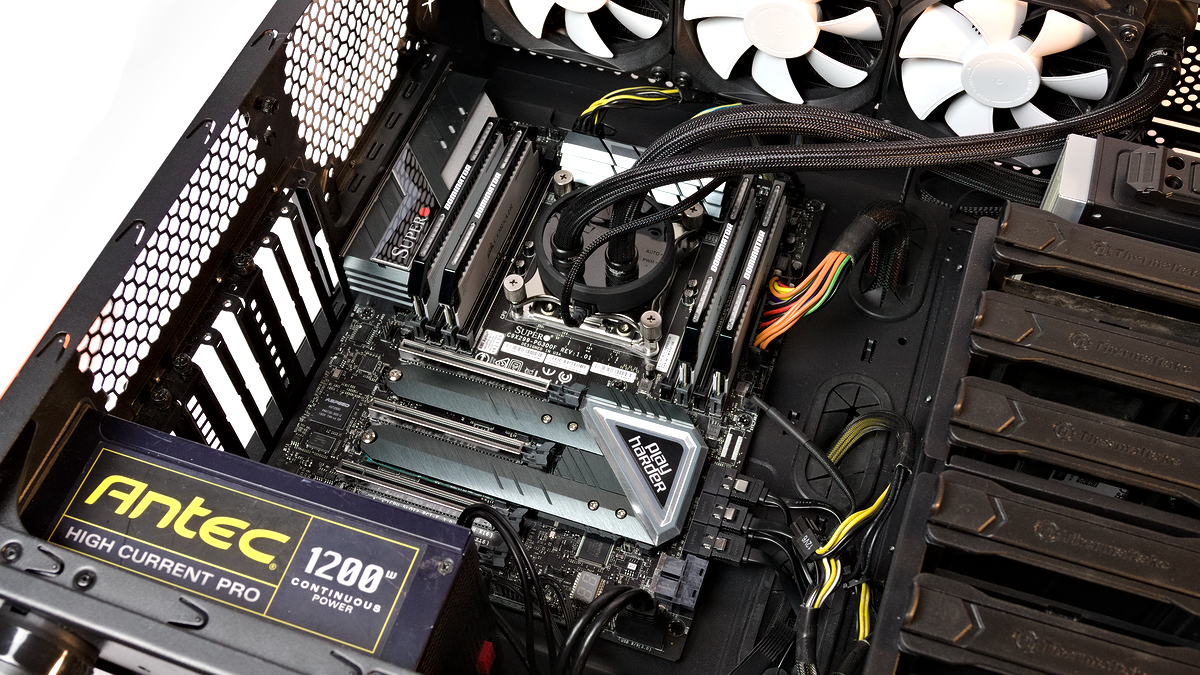Tom's Hardware Verdict
If you're looking for an Intel-based 10Gb workstation board with few frills, Supermicro’s C9X299-PG300F is worth considering. But the UEFI experience is rough around the edges, and overclockers might find more success with other brands.
Pros
- +
Excellent board layout
- +
Performance on-par with competitors
- +
Workstation features while still providing value
Cons
- -
UEFI and gaming features could be better
Why you can trust Tom's Hardware
Supermicro might not be as known to gamers and enthusiasts as ASRock, Asus, or Gigabyte. But in the professional computing industry,the company provides solutions for many IT and server deployments. Reliability has propelled the company into a lucrative position in the data center.
Specifications
| Chipset | Intel X299 PCH |
| Form Factor | ATX |
| ATX | 8 Phases |
| Video Ports | VGA |
| USB Ports | 10Gb/s: (1) Type-A, (1) Type-C, 5Gb/s: (2) Type A; (2) USB 2.0 |
| Network Jacks | 10GbE, Gigabit Ethernet |
| Audio Jacks | (5) Analog, (1) Digital Out |
| Legacy Ports/Jacks | (1) PS/2 |
| Other Ports/Jack | ✗ |
| PCIe x16 | (4) v3.0 (CPU @44: x16/x16/NA/x8); (CPU @44: x16/8/8/8); (CPU @28: x16/x8/x4/NA) |
| PCIe x8 | ✗ |
| PCIe x4 | ✗ |
| PCIe x1 | ✗ |
| CrossFire/SLI | ✗ |
| DIMM slots | (8) DDR4 |
| M.2 slots | (2) PCIe 3.0 x4 |
| SATA Ports | (6) 6Gb/s |
| USB Headers | (1) v3.x Gen1 (1) v2.0 |
| Fan Headers | (6) 4-Pin |
| Legacy Interfaces | (1) COM, (1) TPM |
| Other Interfaces | (2) U.2 PCIe 3.0 x4, AST2500 IPMI/VGA, (2) RGB Headers |
| Diagnostics Panel | Numeric |
| Internal Button/Switch | Power, Clear CMOS, Reset |
| SATA Controllers | Integrated (0/1/5/10) |
| Ethernet Controllers | Intel I210-AT, Aquantia AQC107 |
| Wi-Fi / Bluetooth | ✗ |
| USB Controllers | ✗ |
| Audio Codec | ALC |
| DDL/DTS Connect | ✗ |
| Warranty | 3 years labor; 1 year parts |
Features
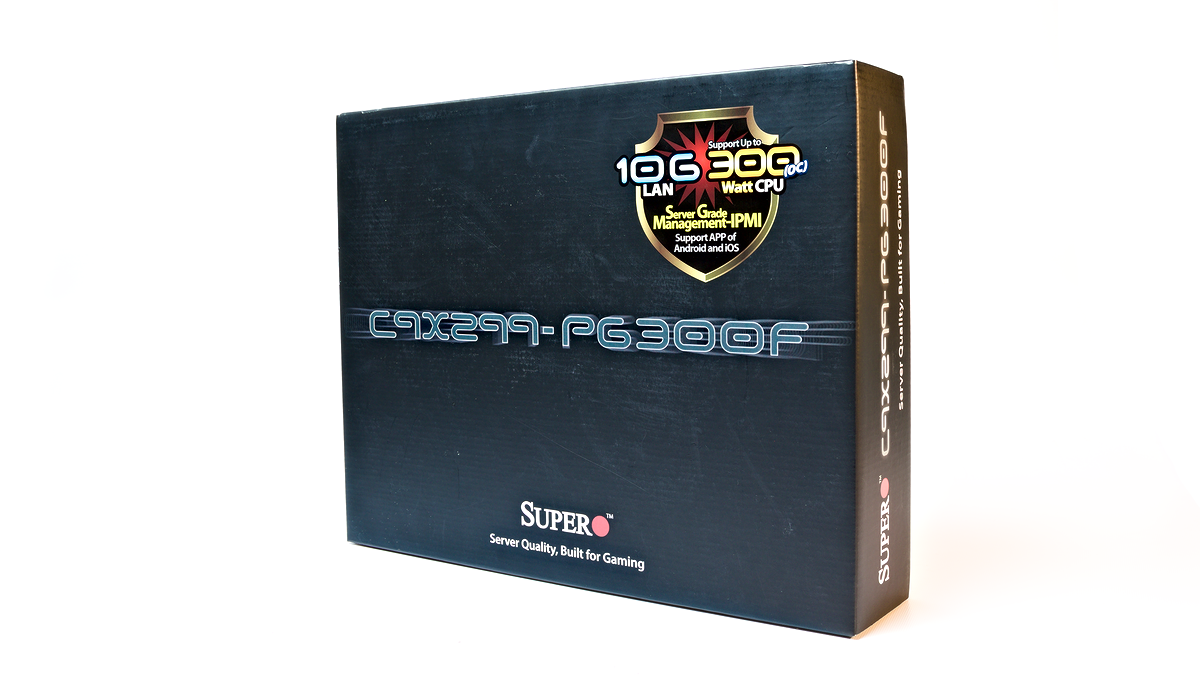
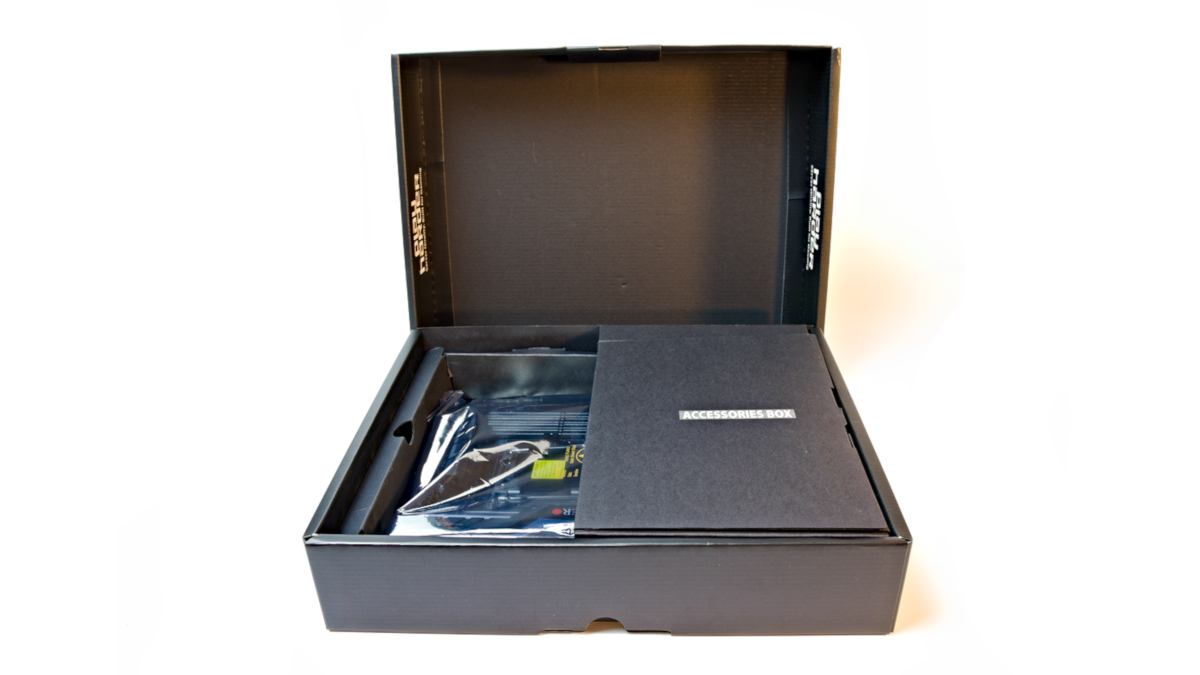
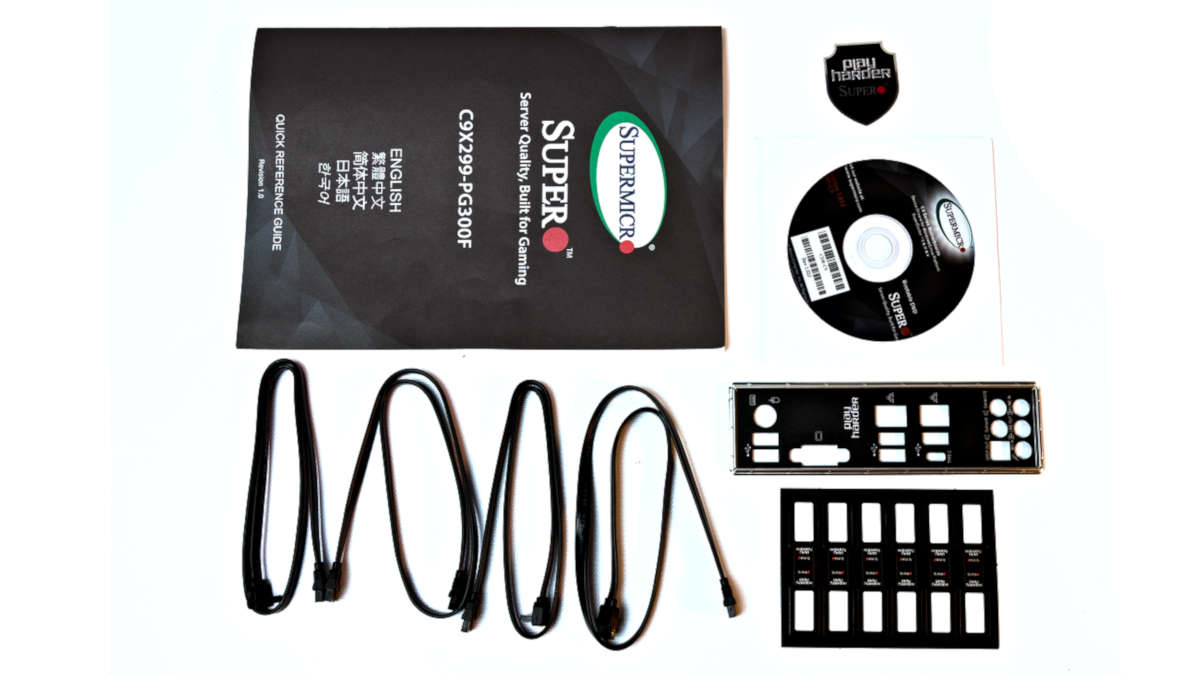
On the flip side, Supermicro’s Professional Gaming brand attempts to deliver server-infused products into the enthusiast community. Though the previously reviewed X11SRi-IF had an unusual form factor and niche, Supermicro aims the C9X299-PG300F at the higher-tiered gaming PC or workstation near you. Sporting Intel’s X299 chipset, it supports Intel's i7 and i9 Core X-series processors with support for up to 165W TDP SKUs. Though it does support our Core i9-10980XE, it does not enable the additional four lanes equipped through the refreshed Intel processors.
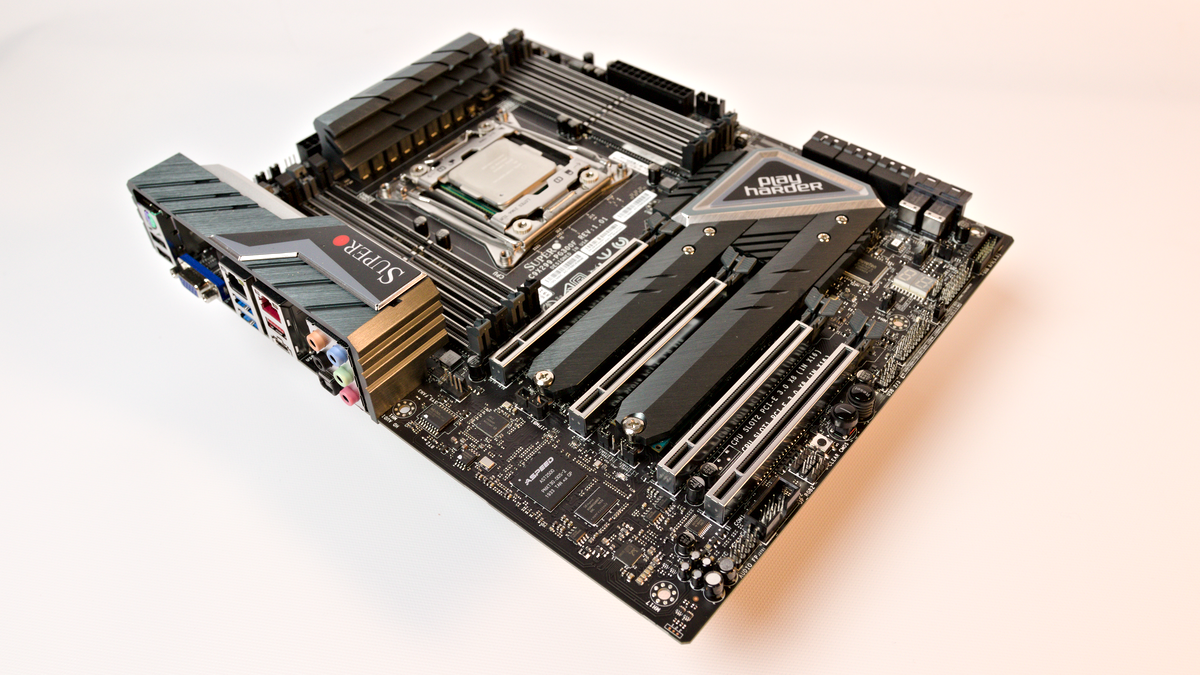
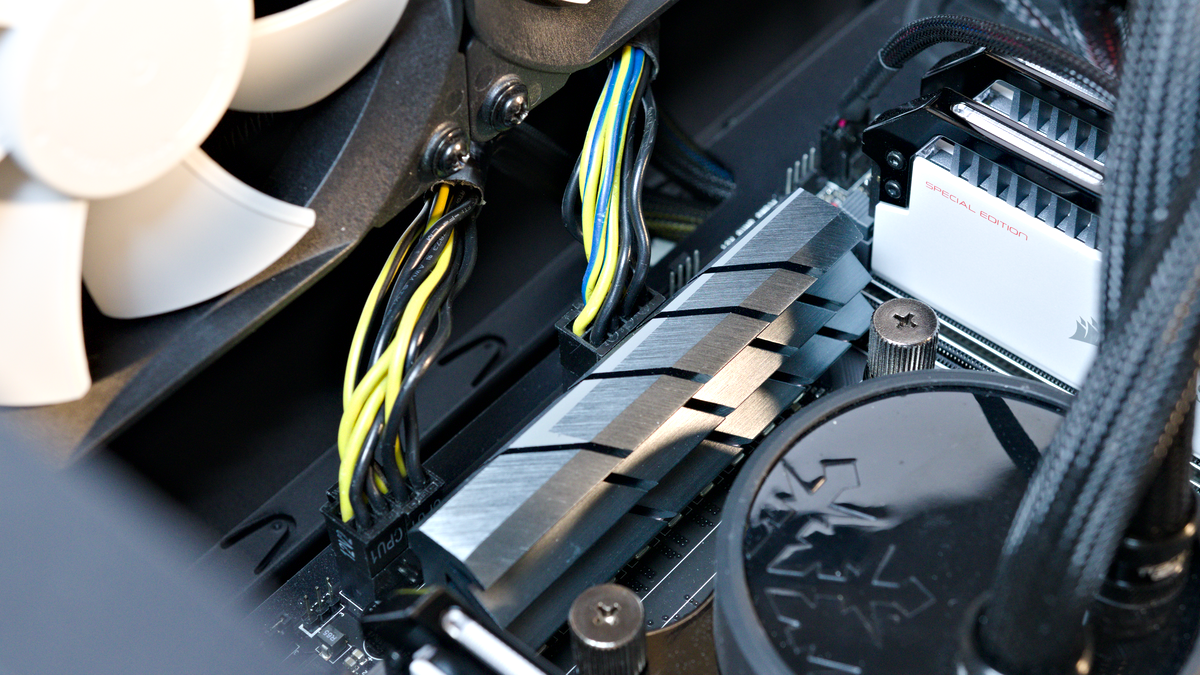
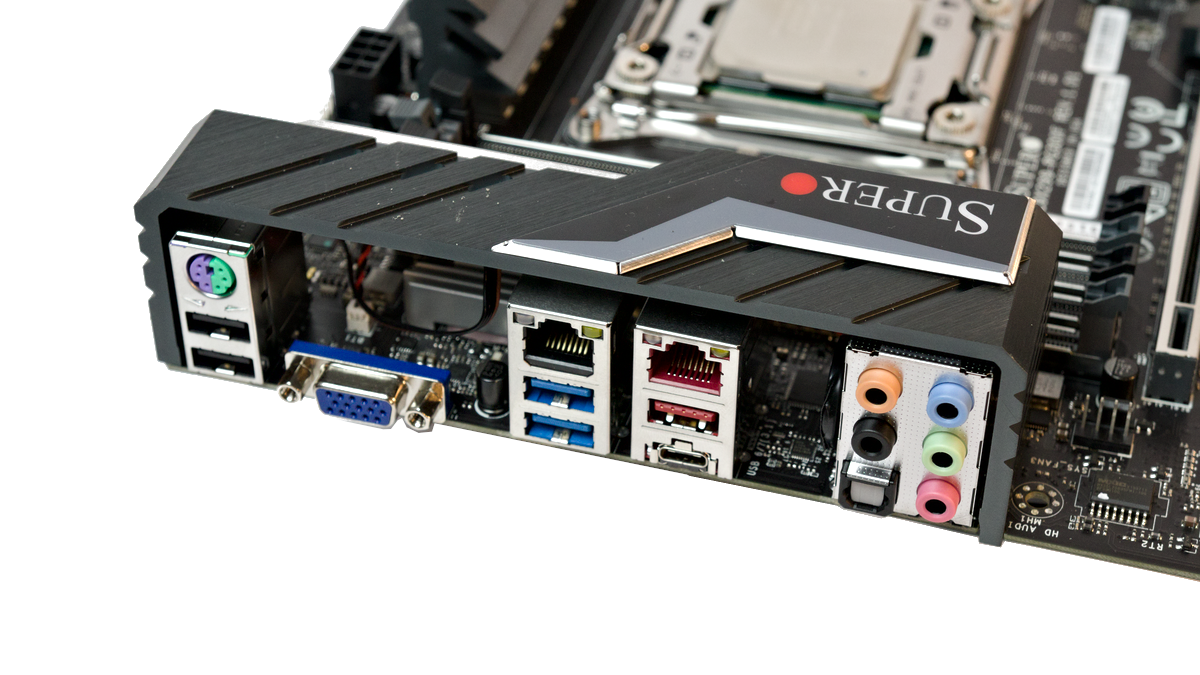
Sporting a black and gun-metal finish, the PG300F in some ways looks a lot like some of the other X299 boards on the market. The 8-phase voltage regulator is cooled by a heatsink that looks similar to some older ASRock models, and the M.2 shield vaguely resembles some of MSI's earlier implementations. The I/O panel cover looks and feels like the plastic shrouds of old (MSI’s X370 Krait comes to mind), but beyond that, we start to see some of the server DNA beginning to show through.
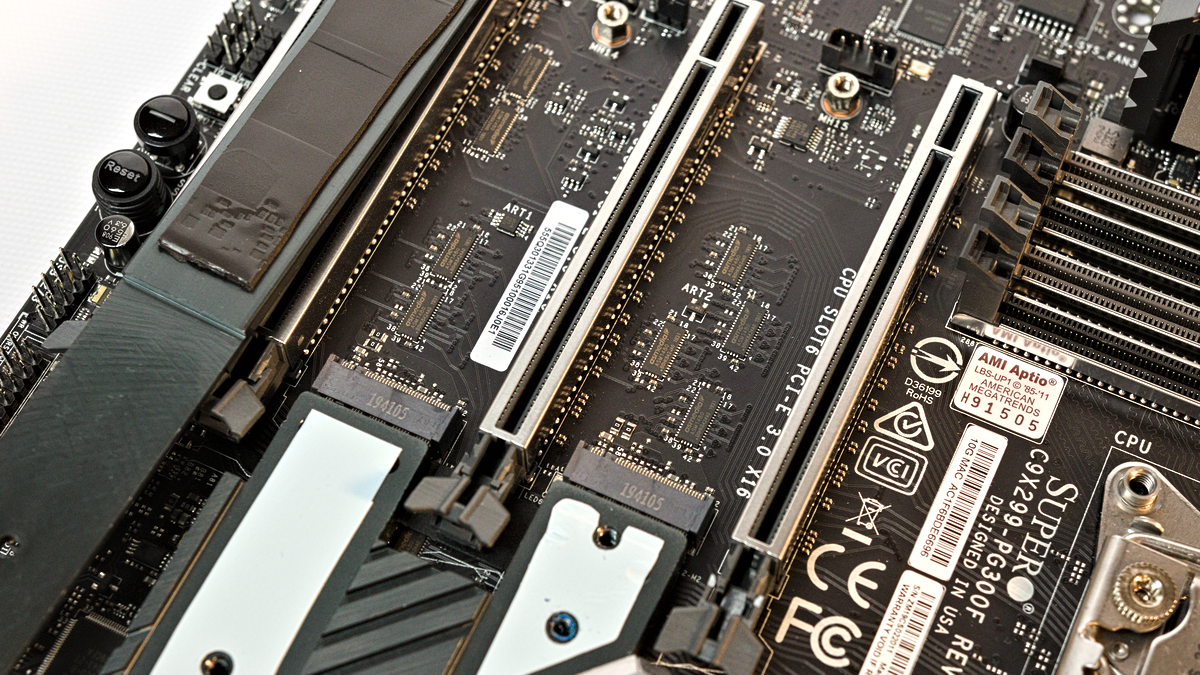

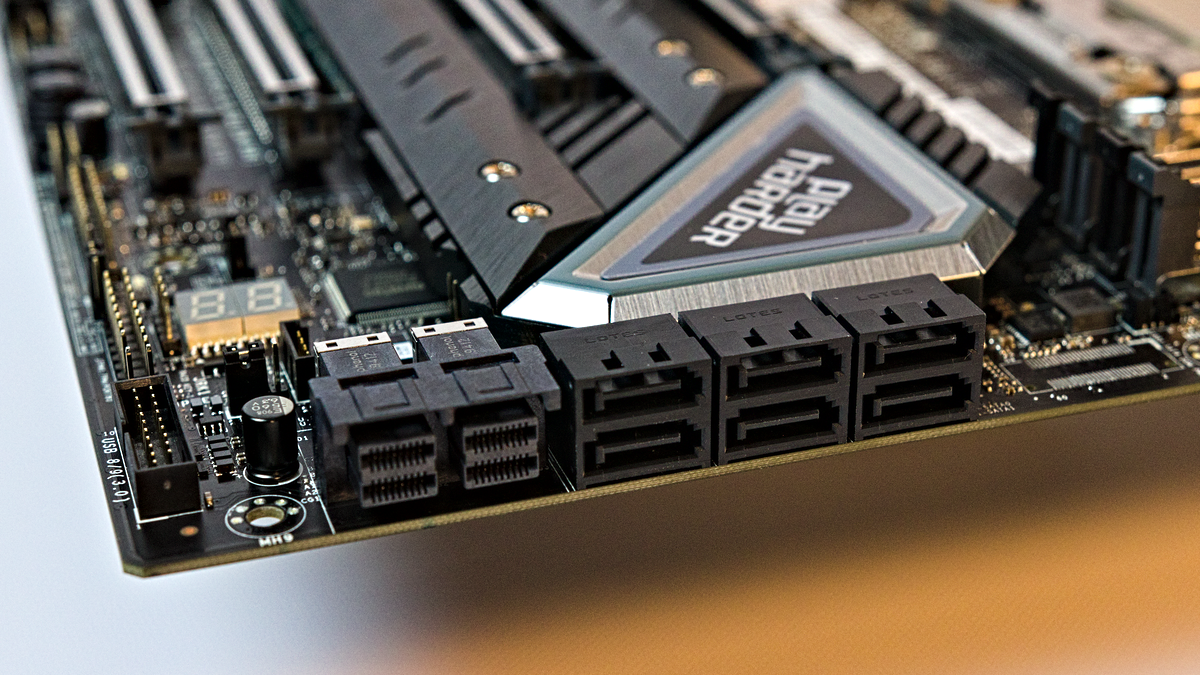
Let's talk about PCIe. This board supports both 28-lane and 44-lane configurations, where the top two PCIe x16 slots are wired out for full-lane allotments (when available), and the bottom two can provide a variety of bifurcation (see table below). The PG300F also offers full bandwidth for both 80mm M.2 NVMe drives through the lanes provided by the PCH. The PCH further routes out 6 SATA ports, and depending on the processor deployed, one or both of the U.2 ports. However, when using the U.2_1 slot, the bottom slot gets reduced to an x4 connection.
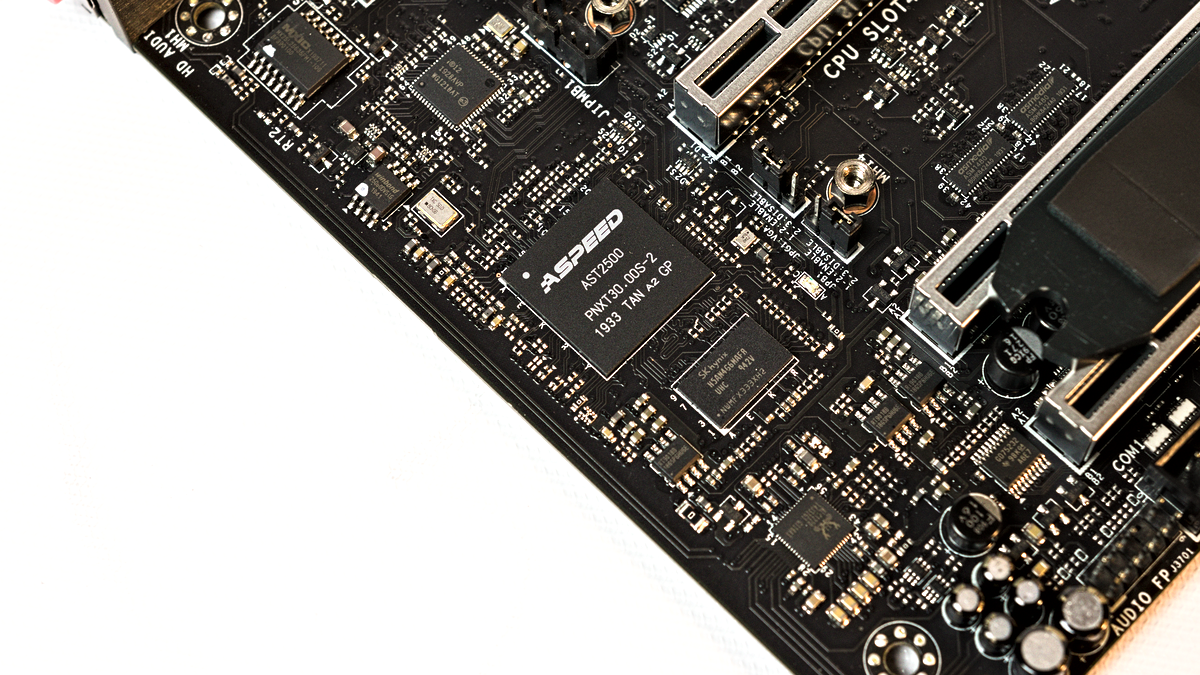
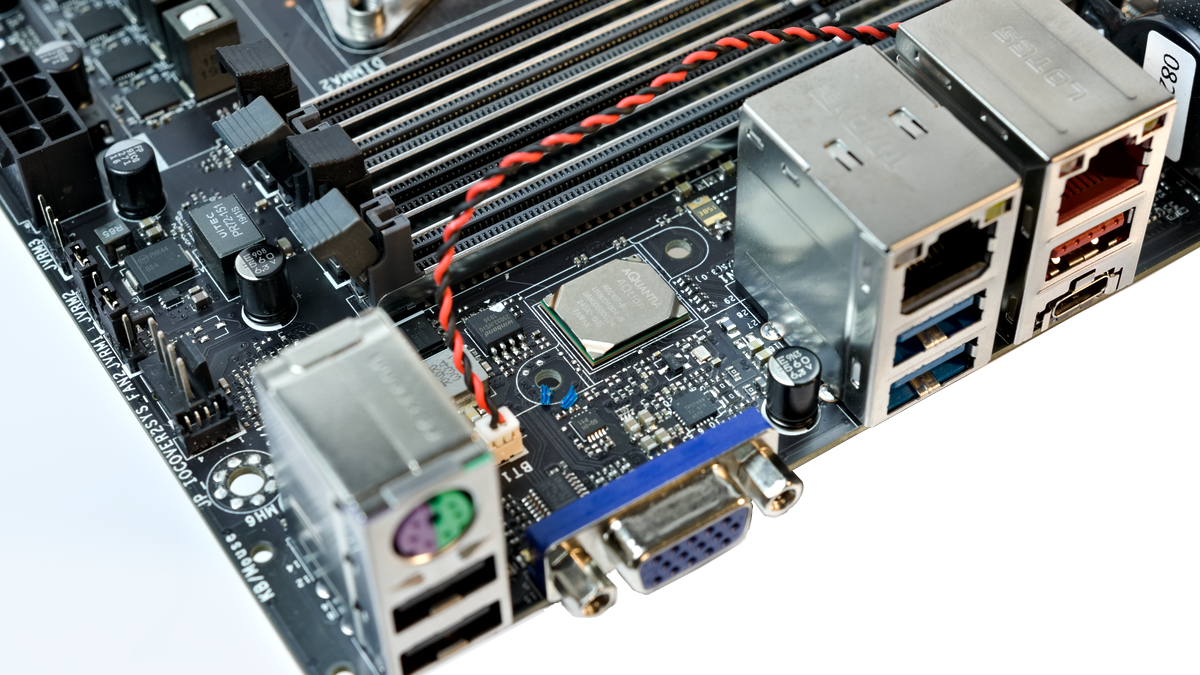
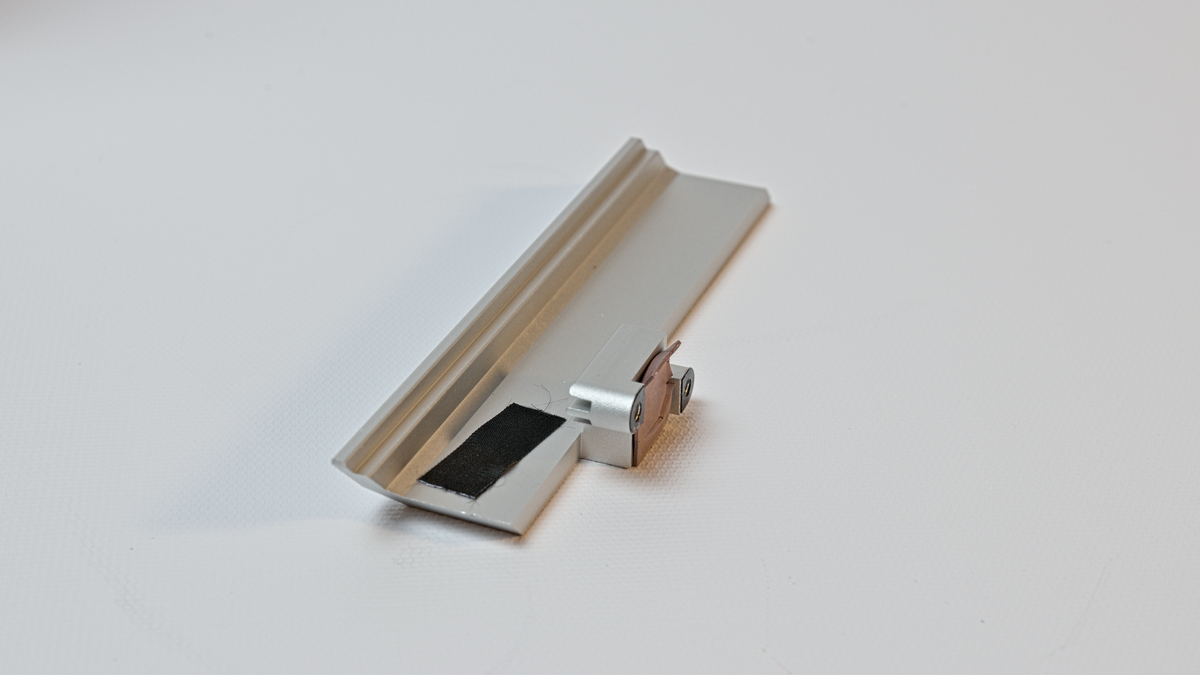
Now let's dig into the server and workstation features. Intelligent Platform Management Interface (IPMI) is available for users that require remote access to the system, and Aquantia supplies its AQC107 hardware for 10Gb ethernet. You might also be curious about the VGA connector on the back, which is for viewing the UEFI and console output through the AST2500 baseboard management controller (BMC). COM, TPM, and chassis intrusion headers round out the other header interfaces on this board.
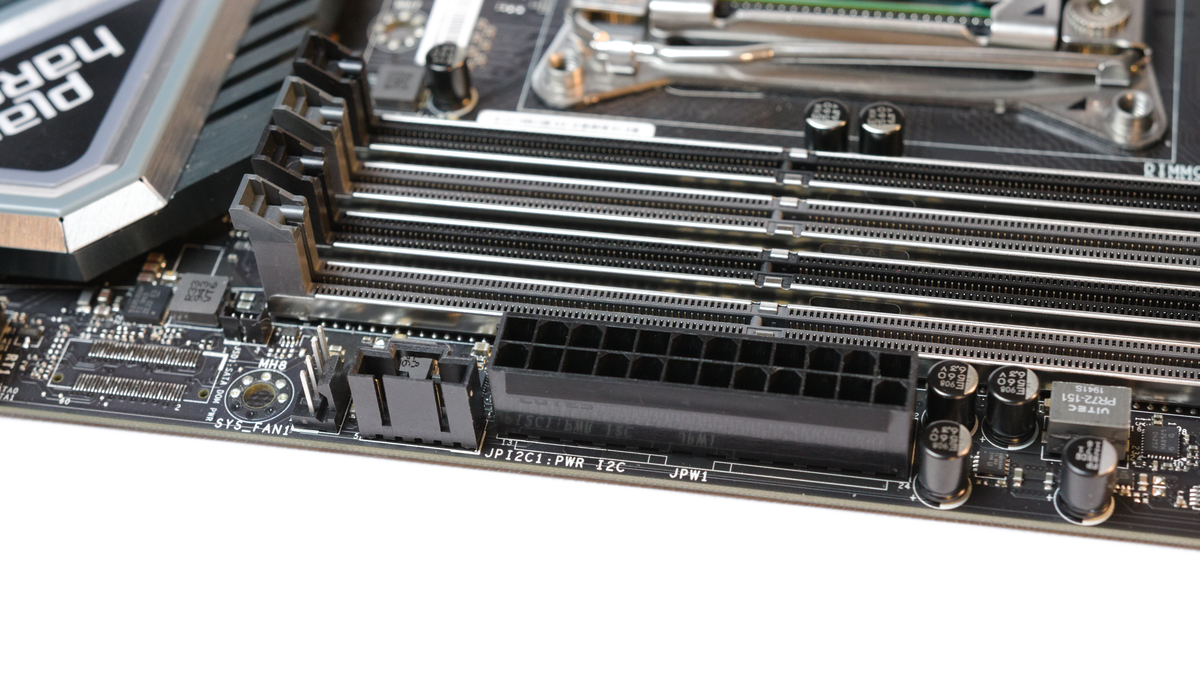
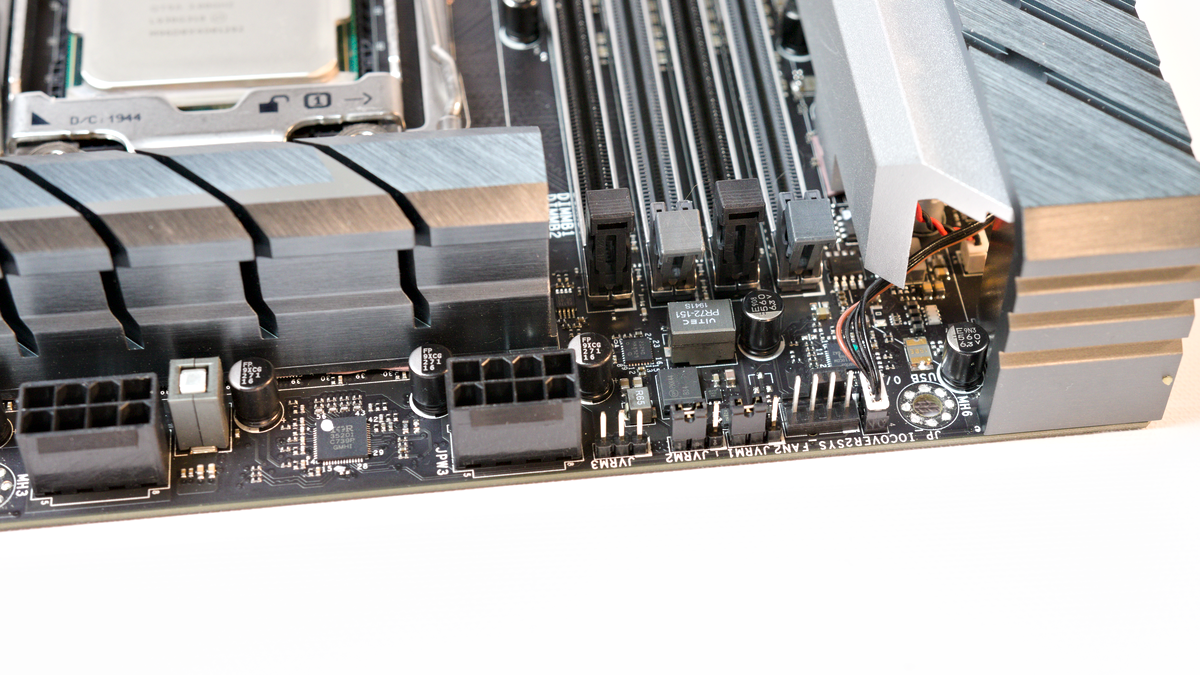
The back panel of the PG300F is straightforward, with two ports of USB2.0, USB3.0 Gen1, and USB 3.1 Gen2. The PG300F equips the Realtek ALC1220 chipset, and the standard five analog and one digital port are available for audio devices. The Intel I210-AT controller drives an additional 1Gb network connection.
Moving back to the board, six 4-pin fan headers are scattered evenly across the PCB, along with additional USB2.0 and USB3.0 Gen1 headers. Since this is technically a "gaming" motherboard, Supermicro provides two 12V RGB headers, which are programmable through the company’s SuperO software.
Get Tom's Hardware's best news and in-depth reviews, straight to your inbox.
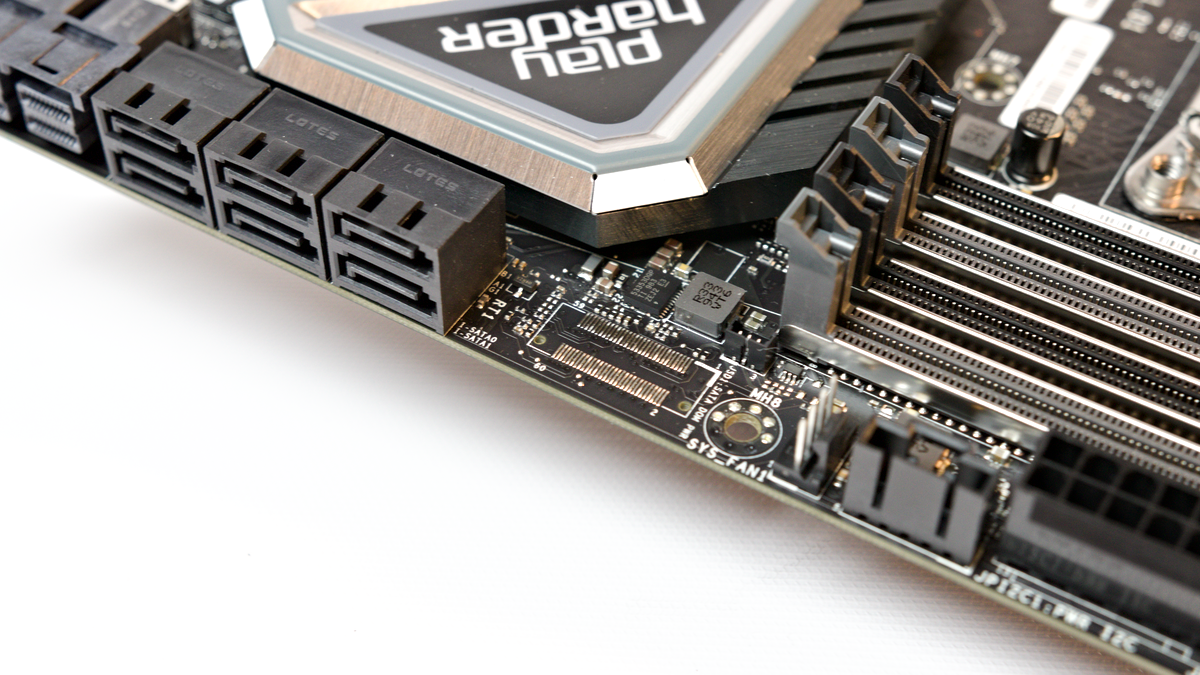
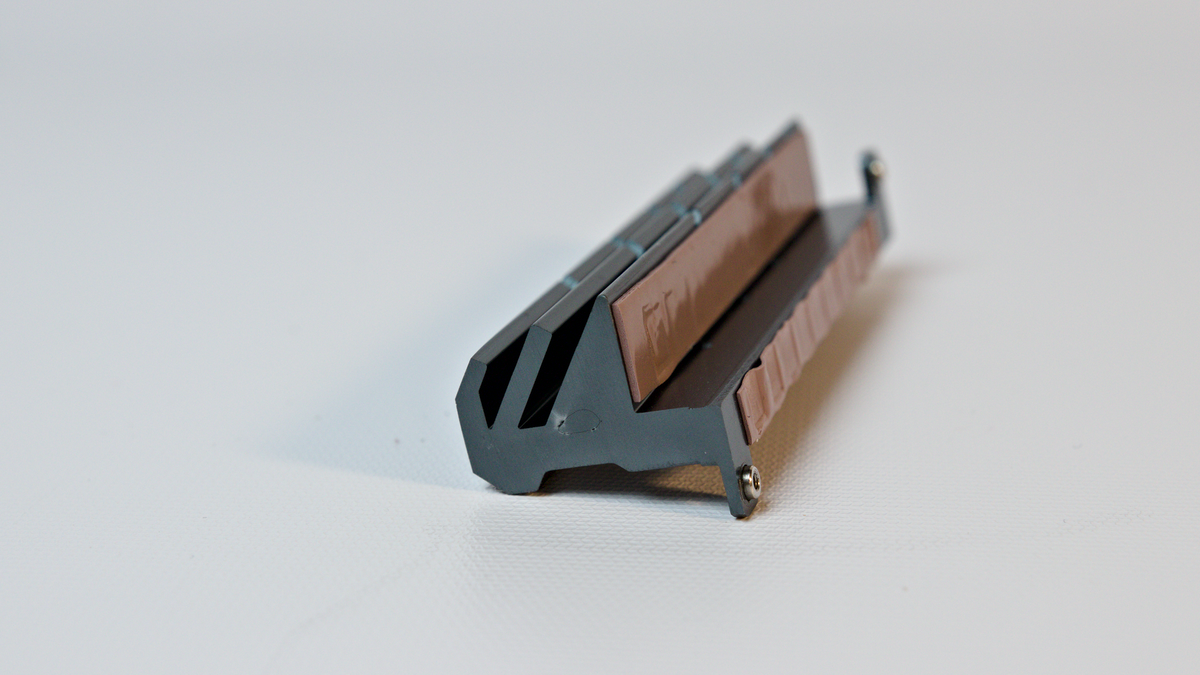
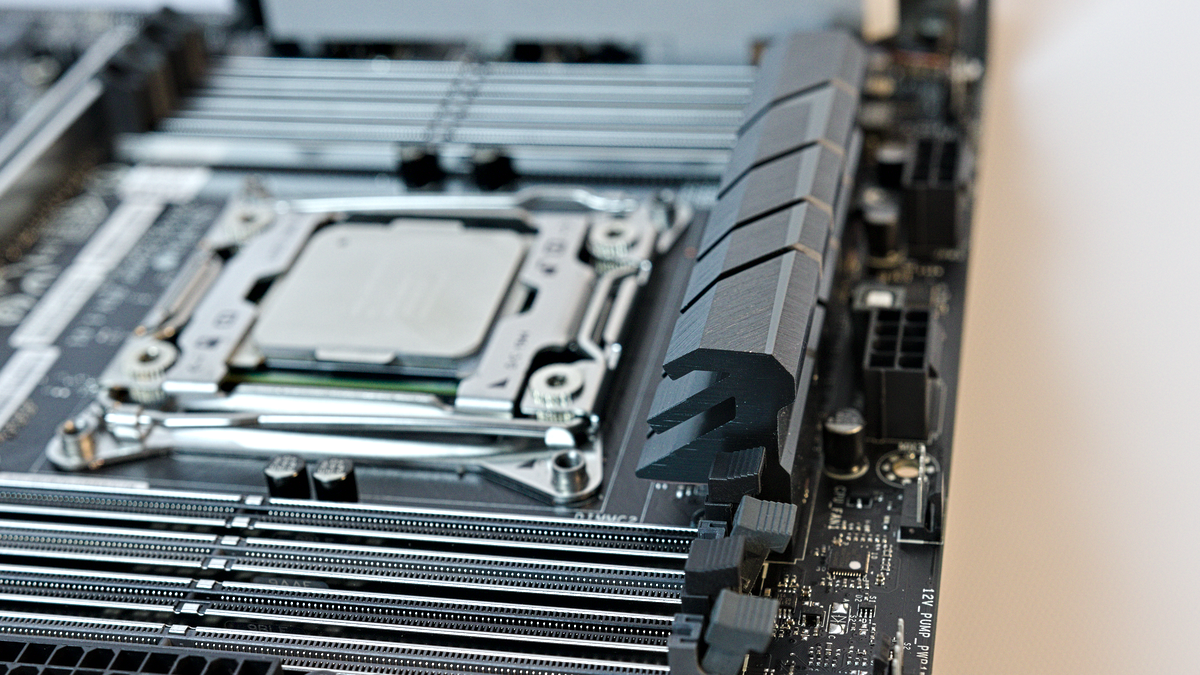
Overclockers will appreciate the Power, Reset, and Clear CMOS buttons located on the bottom edge of the board, along with the numeric debug display. One difference we see between the stock photos and our motherboard sample is the removal of the EQCD Samtec header below the 24-pin, which would be very helpful for low-level debug scenarios. Also, the stock photo shows a removable BIOS chip, whereas production units are not removable.
One deficiency for overclockers is the underwhelming voltage regulator heatsink. It’s sufficient, but our overclocking performance was a little spicy due to the mass of the heatsink.
Physically, this board is an ideal mix of convenience and features that leaves us with very few complaints. However, it could use a little bit more polish in terms of aesthetics and branding to make it stand-out from this firm’s server products, as well as competing offerings in the market. In short, Supermicro manages a decent job of blending the features of a workstation into a "gaming" motherboard with the C9X299-PG300F.
MORE: Best Motherboards
MORE: How To Choose A Motherboard
MORE: All Motherboard Content
-
mdd1963 I'm sure there are some folks buying X299 mainboards and CPUs for gaming, just like some bought Alienware's 16 core Threadripper offerings a couple years back....(both moves are/were...mistakes.)Reply
